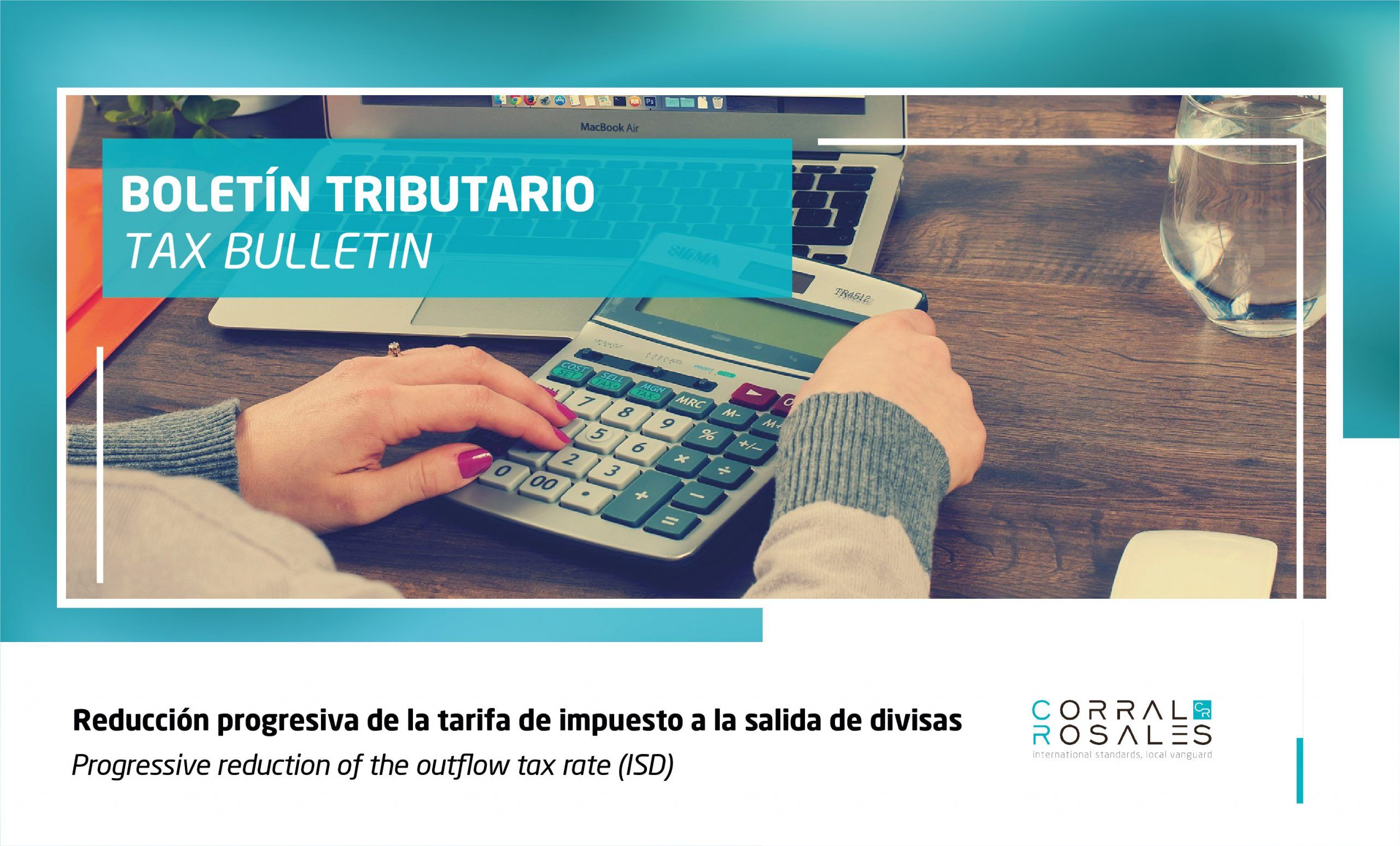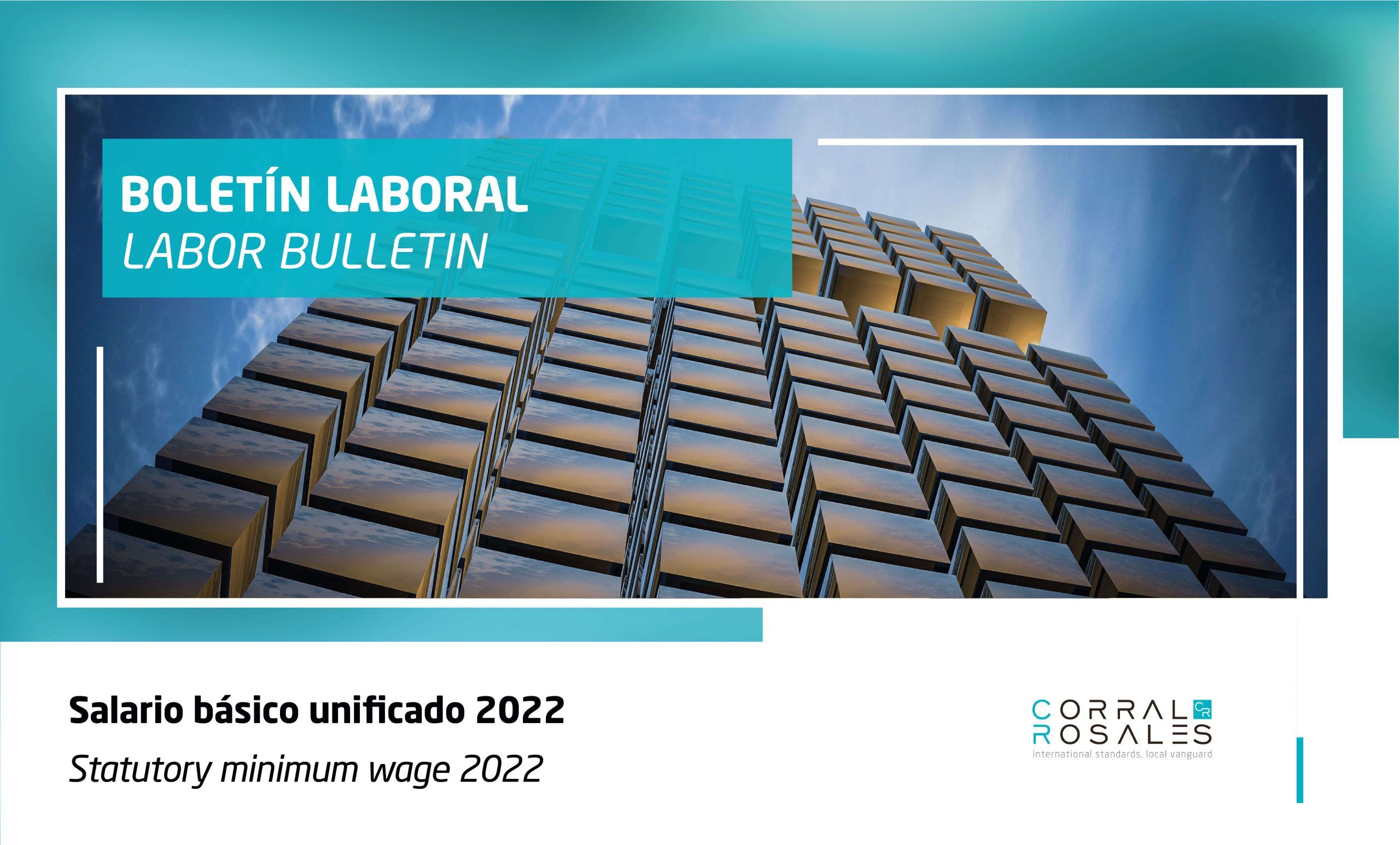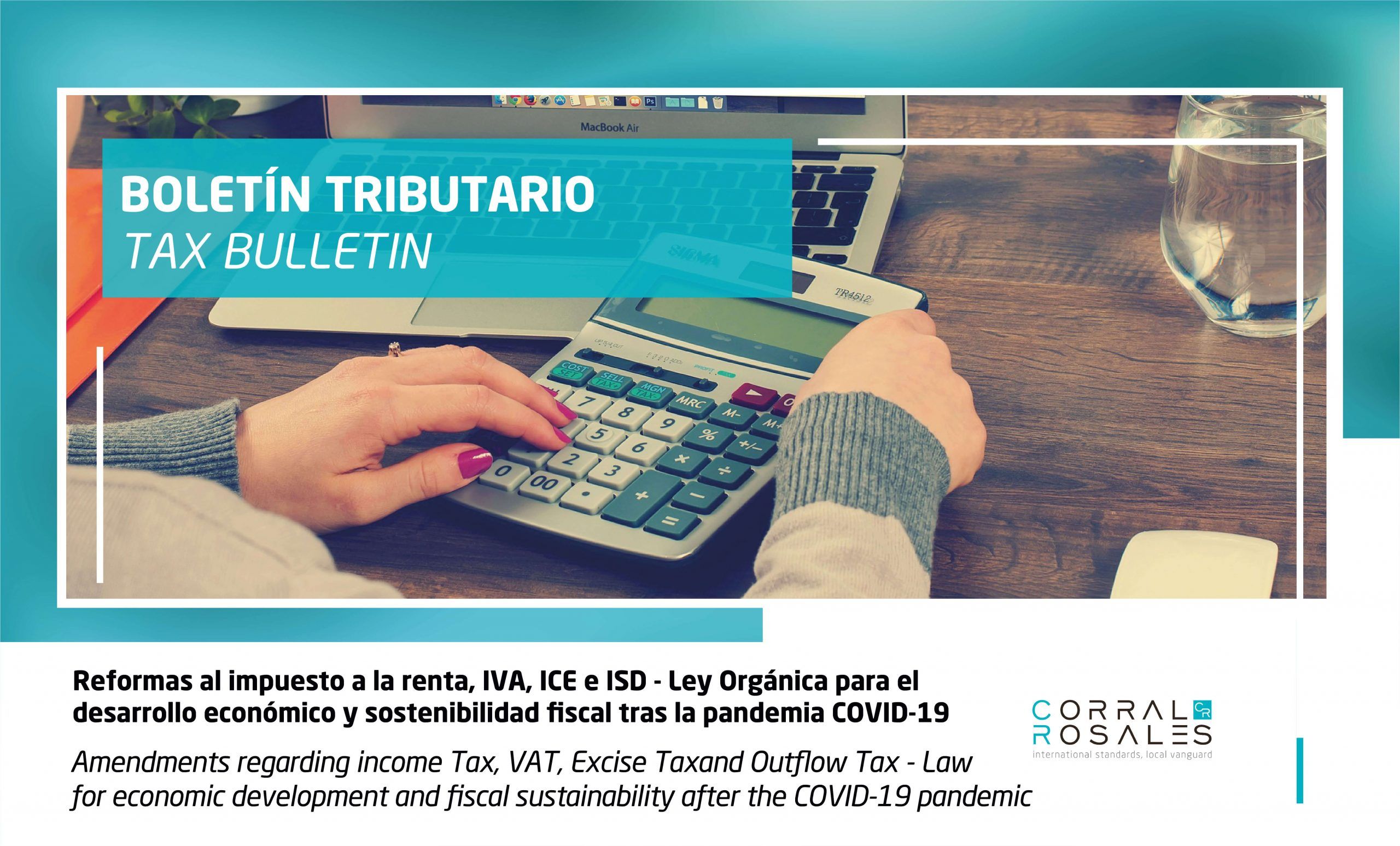On December 29, the President of the Republic issued the corresponding regulations. CorralRosales will summarize the most important changes introduced by the indicated regulations in several bulletins. The following analyzes the main elements of the Regime for Regularization of Assets Located Abroad (hereinafter the “Regime”).
1. Who can benefit from the Regime?
Tax residents in Ecuador who as of December 31, 2020, meet the following conditions are eligible for the Regime:
- The taxpayers have maintained assets abroad such as money, real estate, shares, etc. derived from income that should have been subject to income tax in 2020 or before, but such tax has not been paid, provided that:
- The Tax Authority has not initiated an assessment procedure and the assessment is not final,
- The assets are not subject to judicial litigation,
- The assets are not located in countries classified as high risk or non-cooperative by the Financial Action Task Force (FATF), and
- The money is in a financial institution.
- The taxpayer has carried out transactions subject to Outflow Tax (ISD) and have not paid such tax, provided that conditions (i) and (ii) above are met.
2. Who are not eligible for the Regime?
The following are not eligible for the Regime:
- Individuals who, as of November 29, 2021, have an enforceable conviction for crimes against the development regime, crimes against the efficiency of the public administration, customs, or economic crimes, and
- Individuals who have been public officials at any time since 2015, their spouses, domestic partners or family members up to the second degree of consanguinity and second degree of affinity, and entities in which these officials have or have had a participation of more than 10%.
3. What are the requirements to be eligible for the Regime?
Taxpayers may apply for this Regime until December 31, 2022, for such purpose they must comply with the following requirements:
- Taxpayers must submit a reserved sworn statement in which they state the following:
- That as of December 31, 2020, they did not maintain any other assets and did not carry out other operations that should have been subject to tax, which comply with the conditions to benefit from the Regime.
- The taxable income that was not taxed in Ecuador, detailed for each fiscal year to which the Regime will be applied.
- For each asset, the date and value of acquisition, the commercial value as of December 31, 2020, the place where they are located and, in case of money, the financial entity where it is deposited.
- The amount of the operations that should have been subject to the pay outflow tax (ISD), the date of the taxable event and its description.
The valuation of the assets shall be made at commercial value. The sworn statement must include the supporting documentation of the value of the assets.
- b. Declare and pay the Temporary Tax for the Regularization of Assets Abroad. The taxpayer may request payment facilities.
- c. Submit the patrimonial statement including the regularized assets until December 31, 2022.
4. How is the tax to be paid for the regime calculated?
The taxable base is equal to the sum of:
- a. The values of the assets included in the sworn declaration; and,
- b. The value of the operations that were not subject to the payment of outflow tax (ISD) included in the sworn statement.

5. What are the effects derived from applying the Regime?
- Taxpayers will not be subject to assessment process regarding income tax for the fiscal years 2020 and prior years, and outflow tax (ISD) for operations occurring up to December 31, 2020.
- The taxpayers will not be subject to legal or administrative sanctions derived from the noncompliance of the formal duties related to the above taxes.
- Criminal proceedings will not be initiated regarding crimes of unjustified private enrichment, tax fraud or customs fraud.

Specialist in Tax
Andrea Moya, partner at CorralRosales
amoya@corralrosales.com
+593 2 2544144
Would you like to receive our newsletters with information like the one you have just read?
Click here and subscribe.















